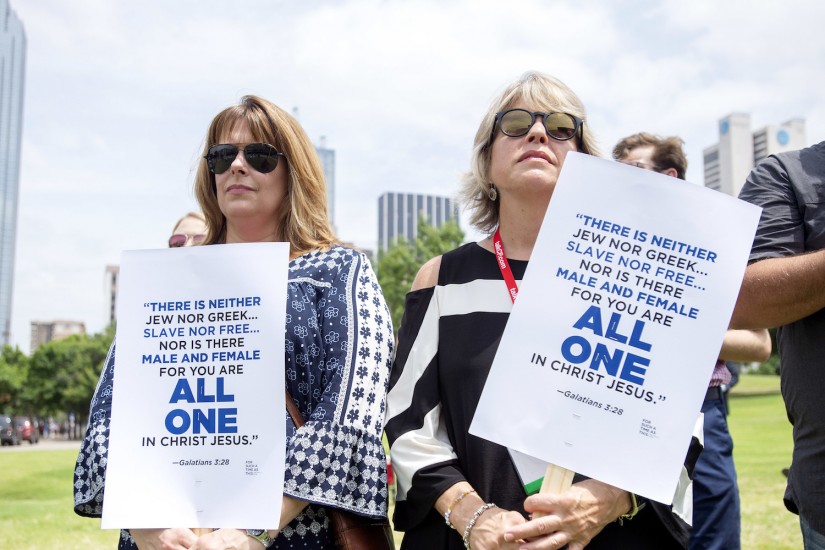Recent media reports have revealed decades of abuse by Southern Baptist pastors.
Denominational leaders are offering apologies and calling the sexual abuse “evil,” “unjust” and a “barbarity of unrestrained sinful patterns.” Many Southern Baptist leaders are considering action.
As a scholar who has written a book on Southern Baptist women and the church, I’d argue that this scandal has its origins in how Southern Baptists have long and purposefully pushed back against women’s progress.
The ‘woman question’
Since the Southern Baptist Convention’s founding in 1845, Southern Baptists have had a complicated history with women.
Historian Elizabeth Flowers explains that questions of women’s roles as preachers, teachers and deacons were frequent subjects of disagreement among Baptists.
Women were not allowed to serve as messengers to the Southern Baptist Convention until 1918. A messenger is a member of a local Southern Baptist church who is appointed by the congregation to attend the annual meeting of the Southern Baptist Convention and vote on Southern Baptist Convention business. The church doesn’t instruct the messenger how to vote, nor does the messenger represent the church. Messengers attend as individuals who vote based on their own conscience.
When Southern Baptist women formed a national organization to support missionary work in 1888, they had to hold their first meeting in a Methodist church down the street from the Baptist church where the Southern Baptist Convention was meeting. Until the 20th century, only men gave the organization’s report to the Southern Baptist Convention.
Indeed, women in the U.S. did not have the right to vote at this time. The Southern Baptist Convention’s practices certainly reflected larger social norms around gender, but its reasoning was also theological. These beliefs formed a basis for gender hierarchy that ultimately triumphed in the late 20th century.
Southern Baptist controversy
In the 1970s, greater numbers of women entered the six Southern Baptist seminaries, many professing a calling to the pastorate, even though most churches still refused to ordain them.
I grew up Southern Baptist and was a student at The Southern Baptist Theological Seminary in the 1980s. By that time, women were about a third of the student body, although very few women were professors.
This was also a time when fundamentalists took charge of the Southern Baptist Convention. The Southern Baptist Convention owns six seminaries and numerous publishing and missionary agencies worth billions of dollars.
Fundamentalists used biblical inerrancy, the idea that the Bible is without error in history, science or theology, as a test for theological faithfulness.
Beginning with the denomination’s annual conference in 1979, these fundamentalists were able to inspire voters to elect fundamentalist leaders. They claimed that moderate Baptists who did not accept inerrancy were also the ones who did not believe the Bible.
The new leaders purged the moderates from Southern Baptist Convention employment and leadership.
While fundamentalists claimed this takeover was about biblical inerrancy, in reality, it was as much, if not more, about women. As historian Barry Hankins also concludes, the “gender issue” eventually became a central issue for Southern Baptist fundamentalists as their takeover of the Southern Baptist Convention proceeded.
So even as these Baptist leaders claimed their movement was about the Bible, they specifically targeted women and worked to reverse women’s progress in church and home.
